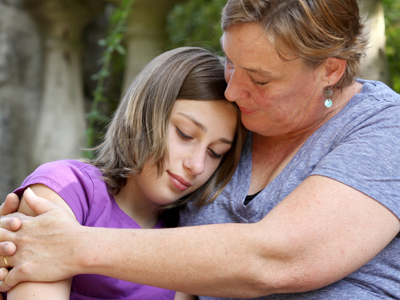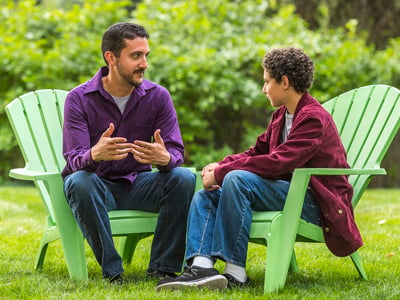- Doctors & Departments
-
Conditions & Advice
- Overview
- Conditions and Symptoms
- Symptom Checker
- Parent Resources
- The Connection Journey
- Calm A Crying Baby
- Sports Articles
- Dosage Tables
- Baby Guide
-
Your Visit
- Overview
- Prepare for Your Visit
- Your Overnight Stay
- Send a Cheer Card
- Family and Patient Resources
- Patient Cost Estimate
- Insurance and Financial Resources
- Online Bill Pay
- Medical Records
- Policies and Procedures
- We Ask Because We Care
Click to find the locations nearest youFind locations by region
See all locations -
Community
- Overview
- Addressing the Youth Mental Health Crisis
- Calendar of Events
- Child Health Advocacy
- Community Health
- Community Partners
- Corporate Relations
- Global Health
- Patient Advocacy
- Patient Stories
- Pediatric Affiliations
- Support Children’s Colorado
- Specialty Outreach Clinics
Your Support Matters
Upcoming Events
Mental Health Town Hall
Tuesday, April 23, 2024Join Children’s Hospital Colorado pediatric experts for a virtual...
-
Research & Innovation
- Overview
- Clinical Trials
- Q: Pediatric Health Advances
- Discoveries and Milestones
- Training and Internships
- Academic Affiliation
- Investigator Resources
- Funding Opportunities
- Center For Innovation
- Support Our Research
- Research Areas

It starts with a Q:
For the latest cutting-edge research, innovative collaborations and remarkable discoveries in child health, read stories from across all our areas of study in Q: Advances and Answers in Pediatric Health.


How to Talk to Kids About Death and Grief

Loss is difficult for all of us, and children are no exception. They need a powerful network of love and support to navigate grief. Children’s first experience with mortality often comes with the death of a grandparent or a cherished pet. The death of a pet is significant and can be as painful as the death of a family member. In the wake of any bereavement, kids need honesty, comfort and someone to listen to their thoughts and ease their fears.
“It’s normal to want to protect children from the pain of loss,” says Jenna Glover, PhD, a pediatric psychologist. “But avoiding the topic can make them feel even more alone and confused than they already do. It’s important to talk with kids directly about what has happened and how they feel about it.”
“Children are resilient,” adds child life specialist Megan Fisher, BS, CCLS. “When they learn difficult information in a developmentally appropriate way, from a safe person, they can process the information, express their emotions and emerge stronger.”
While a child’s ability to understand death varies depending on their age and emotional and developmental level, as well as the closeness of the lost loved one, here are some general guidelines for how to help kids deal with death. Read on to learn how children in different age groups understand death, react to it, and ways to help them process their grief.
Tips for talking to children about death
Parents and caregivers should talk to their children directly about death and loss. It’s OK to talk about death itself and the many feelings that come with grief and loss, especially if they were close to the person or pet.
Begin by explaining what death is and what it means based on your family’s values and background. When speaking with your children, identify a safe space and time. It’s also important to use a warm and gentle tone. Establish eye contact and get on the child's level when talking to them.
Think about what your child already understands or thinks is happening, so you know how to gear your conversation. Let them lead the conversation by asking, “Do you know what is happening?” Remember to only answer their questions, or given them just enough information to help them understand. Often times, adults explain or share too much information, and this can lead to confusion. For example, some children understand the finality of death better than others. Tailor your language to the child's level. (More on this below.)
Be clear and concrete
Avoid using abstract words or euphemisms for death, like “fell asleep,” “passed away” or “went away.” This can be confusing, especially for younger children, as it may make them think that that their loved one will eventually come back.
Instead, explain death in clear, simple terms, such as, “She is dead. Her body has stopped working.” Using concrete words and terms is important, like:
- Explain that the word “died” means that the body stopped working, that doctors couldn’t fix it, and that the loved one won’t be coming back.
- Explain in the context of well-known life functions (for example, how the person no longer breathes, eats, thinks or feels).
Include children in the process (if they want to)
When someone dies, it can be helpful to include children in mourning rituals such as funerals, memorial services and any activities to commemorate the loved one. For many children, having a ceremony and continuing to visit a grave on special occasions, such as holidays or times when they especially miss them, can help provide closure and aid in the grieving process. That said, it’s important to offer this as a choice because not all kids will understand or benefit from attending these rituals.
Explain what is involved in the funeral or ceremony ahead of time, including who will be there, where the body will be, and that many people may be crying or feeling sad.
Feelings and questions are OK
It’s OK to let your child see your emotional pain. Crying is a natural reaction to grief, and it may help your child feel more comfortable sharing their own feelings.
Explain to your child that strong feelings are part of grief and that they can come and go for a long period of time. These feelings include sadness, anger, fear and even rage. Be sure to normalize these feelings and encourage them to feel and express their feelings in safe, healthy ways.
Honor children’s questions about death and ask them what they think. This can help you understand their knowledge about death.
Be patient
Be patient with your child. They may need to have the same questions answered several times, or they may have more questions later.
Give your child space and time to process their feelings. This could include creating a special place for feeling their feelings and holding an object or picture that reminds them of their loved one.
And remember, grief is a process that takes time. Be available as they process what the death means to them.
Ask for help if you need it
Watch for signs that your child may need help coping with the death of a special person and consider reaching out to a counselor or therapist to provide additional support. These signs include:
- Extreme behavior changes (such as being withdrawn or aggressive)
- Change in school attendance or school performance
- Changes in sleeping, eating and mood
Take care of yourself, too
Remember to take care of yourself during this difficult time. You can help your child best when you are calm and rested. If you need more help with your own grieving process, or you’re struggling with depression or feelings of overwhelm or hopelessness, reach out for support from a mental health professional.
Tips on talking to children about death by age group
Conversations about death will likely be different depending on a child’s age. It is important to have these conversations and to be honest, say Dr. Glover and Fisher, even with preschool and elementary school children.
Here’s how to approach the topic depending on your child’s age.
Helping children grieve: ages 3 to 6 years old
Kids in this age group often do not understand the causes or finality of death. A child this age:
- Likely sees death as something temporary or reversible.
- May believe that their thoughts, actions or feelings caused death, or that death is punishment for doing something bad.
- May think they will “catch” the same thing.
After hearing about the death of a special person or pet, it’s common for young children to respond by:
- Acting as if it didn’t happen or seem unaffected.
- Demonstrating regressive behaviors, such as bedwetting or thumb sucking.
- Experiencing increased anxiety, like having nightmares and sleep disturbances.
- Having difficulty separating from caregivers or loved ones.
- Needing to talk about the death often in order to process it.
- Expressing feelings through play.
- Clowning around or showing off to distract adults.
Use the following tips to help guide your young child through this difficult time:
- Be honest, and use concrete terms to describe death, such as, “When people die, they no longer breathe, eat or sleep.”
- When explaining death, do not use words such as “went to sleep,” “went away,” or “passed away.” This confuses children and may make them think the person or pet is coming back.
- Patiently address repetitive questions.
- Maintain normal routines when possible.
- Provide opportunities to play, draw and express feelings.
- Reassure your child that nothing they did, said or thought caused the death.
- Project confidence that family members will be OK.
- Give them a lot of affection and support.
- Include your child in family rituals and saying goodbye, including funerals.
- Explain what is involved in a ceremony, including who will be there, where the body will be (such as a casket), and that people may be crying or feeling sad.
- Use children’s books to help your child understand.
- Model how to talk about feelings with your child. For example, “I feel sad that grandpa died, and I need a hug. How are you feeling, and what would help you?"
Ways to memorialize a loved one
- Encourage expression of feelings and create opportunities to share memories about the special person who has died.
- Draw pictures, decorate picture frames, create collages with pictures and words about the special person, and read and tell relevant stories.
Age-appropriate books
- A Terrible Thing Happened by Margaret Holms
- When Dinosaurs Die: A Guide to Understanding Death by Laurie and Marc Brown
- Lifetimes by Bryan Mellonie and Robert Ingpen
- The Fall of Freddie the Leaf: A Story of Life For All Ages by Leo Buscaglia
- Saying Good-Bye to Grandma by Jane Thomas
- Where are you? A child's book about loss by Laura Olivieri
- The Accident by Carol Carrick
- Dog Heaven by Cynthia Rylant
- When a Pet Dies by Fred Rogers
- The Invisible String by Patrice Karst
- I Miss You by Pat Thomas and Lesley Harker
Helping children grieve: ages 6 to 9
Around age 6, children are beginning to understand the finality of death. Generally, 6- to 9-year-olds:
- Begin to understand that death is final and irreversible.
- See death as possible, but only for others; for example, “It only happens to ‘old people.’”
- May have a hard time talking about feelings regarding death.
- May show their anxiety and fear of death by becoming fearful of the unknown or of separation from family and friends.
- May blame themselves for death and experience guilt.
- Trouble concentrating, including difficulties at school.
- Changes in behavior, such as increased aggression or withdrawal.
- Physical symptoms, such as headache or abdominal pain.
- Trouble separating from family members or caregivers.
- Difficulty returning to school.
- Be honest and use concrete terms to describe death.
- Answer questions truthfully. It’s also OK to answer, “I don’t know. Let me find out.”
- Maintain daily routines and provide opportunities to play, draw, or write about experiences or feelings.
- Encourage your child to take part in family good-bye rituals, including funerals and memorial services.
- Explain what is involved in ceremony, including who will be there, where the body will be (for example, in a casket) and that people may be crying or feeling sad.
Ways to memorialize the loved one who died
- Encourage your child to express their feelings and create opportunities to share memories about the special person who has died.
- Write a goodbye letter to the loved one or a poem about them.
- Make and decorate a memory box that includes photographs, drawings, descriptions of favorite memories or special moments, or what your child will miss most about the loved one.
- Make a scrapbook with photos, drawings, letters, or words about the loved one.
- Older children may want to write about their feelings in a journal.
Helping children grieve: ages 9 to 12
Generally, pre-teens:
- Have a realistic understanding of the finality of death.
- Understand death as forever and that it happens to all living things.
- Can be curious about the process of death and what happens to a person after death.
- Begin to have questions about their own death and what may happen to them after death.
- May experience fear of the unknown, loss of control or separation from family and friends.
- May blame themselves for the death or have feelings of guilt or resentment.
- May be interested in the spiritual aspects of death and good-bye rituals such as funerals, burial or cremation.
- Show avoidance or withdrawal and an aversion to sharing feelings or concerns related to the death or coping.
- Have problems with family members or friends.
- Express anger toward caregivers or withhold information from them.
- Have struggles with schoolwork and decreased attendance.
- Show more interest in taking part in spiritual rituals.
- Honestly explain how the person died.
- Allow times and places to talk about death and how to express grief.
- Be available to talk or comfort but respect their need for privacy.
- Encourage participation in family good-bye rituals, including funerals.
- Explain what is involved in the ceremony, including who will be there, where the body will be (for example, cremated or in a casket), and that many people may be crying.
- Show your child healthy ways to cope by your actions, including expressing your own grief.
Ways to memorialize the loved one who died
- Encourage your child to express their feelings and create opportunities to share memories about the special person who has died.
- Write a goodbye letter to the loved one or a poem about them.
- Make and decorate a memory box that includes photographs, drawings, descriptions of favorite memories or special moments, or what your child will miss most about the loved one.
- Make a scrapbook with photos, drawings, letters, or words about the loved one.
- Older children may want to write about their feelings in a journal.
Helping teenagers grieve: ages 13 to 18
Of course, teenagers are better able to understand and conceptualize death. Generally, teens:
- Understand that death is forever and that it happens to all living things.
- May question the meaning of death, life, spiritual and religious beliefs.
- May feel guilt or anger; and some may even feel some responsibility for death whether or not this is justified.
- May consider themselves to be invincible, such as believing, “It can’t happen to me.”
- Avoid or withdraw in order to escape or control difficult feelings.
- Experience problems in their relationships, or even find a different group of friends.
- Have problems with academic performance or school attendance.
- Feel alone and unable to communicate with parents or friends.
- Become impulsive or engage in high-risk behaviors such as driving fast and using drugs or alcohol.
To help your teen with grief:
- Allow times and places to openly talk about death and how to express grief.
- Be available to talk but respect the need for privacy.
- Help them identify friends or other trusted adults with whom they can share thoughts and feelings.
- Encourage participation in family goodbye rituals, including funerals.
- Explain what is involved in the ceremony, including who will be there, where the body will be (such as cremated or in a casket), and that many people may be emotional.
- Demonstrate healthy ways to cope by your actions, including expressing your own grief.
Ways for teens to memorialize a loved one
- Encourage your child to express their feelings and create opportunities to share memories about the special person or pet who has died.
- Create a playlist of songs that reminds your teen of the loved one.
- Create a memory box that includes photographs, special moments shared, drawings, descriptions of favorite memories or what your child will miss most about the pet or loved one.
- Carry a rock, heart or birthstone, or wear a piece of jewelry, that reminds them of their loved one.
- Create a special place in your teen’s room with pictures or keepsakes from their loved one.
- Encourage them to keep a journal.
If your child needs additional support, help is available. Learn more about support services at Children’s Colorado, including our Outpatient Therapy Program, Child Life Department and Color of Healing Bereavement Program.



 720-777-0123
720-777-0123






